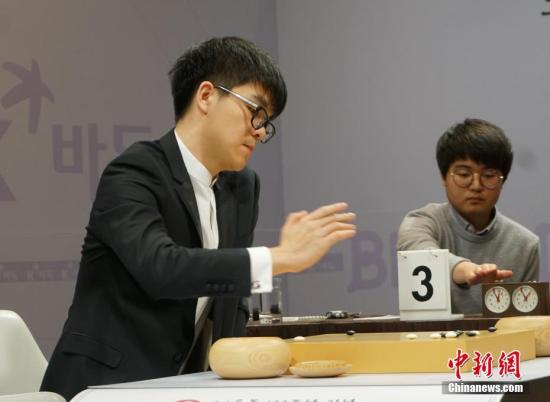Data map: Chinese chess player Ke Jie plays with South Korean chess player Li Shishi.
Pictured is Ke Jie.
Photo by China News Agency reporter Zeng Nai
China News Service Client, Beijing, June 7 (Reporter Wang Hao) On the 7th, the first day of the annual college entrance examination, the topic of composition has also become the focus of attention.
The National New College Entrance Examination Volume I about the three Go terms of "master, master, and vulgar" has aroused heated discussions, and many Go masters have also put forward their opinions from their own perspectives.
In the topic of the composition, the three Go terms of "master hand, master hand and common hand" are briefly explained, and candidates are required to write a composition based on the materials to reflect their own perception and thinking.
After the Chinese exam, Ke Jie, the "eight crown king" who has always been active on social media, gave his opinion.
He believes that the "master" is the first hand of the mean, between not bad and good, but the mean is not the same as "mediocre".
In most cases, "vulgar hands" has a derogatory meaning, but in some cases, the exchange of "vulgar hands" may become the best choice at the moment.
The "wonderful moves" are hard to come by, and they are extremely concealed and unique. Many people are often overly constrained by the local parts in the game, making "fake moves" and ignoring the mistakes of overall thinking.
Ke Jie believes that if you want to make a real "wonderful hand", you must have a certain amount of experience and training on weekdays before you can complete a truly outstanding "wonderful hand".
The data picture is Ke Jie.
Image credit: Osports All Sports Photo Agency
"Master hand, skillful hand, and common hand" seem to have different meanings, but there are some dialectical connections among them.
Among them, the literal meaning does not seem to be so "good" "vulgar hands", and there may be other things.
The famous chess player Cao Dayuan Jiuduan said in an interview with the media that life is similar to playing chess.
He hopes that candidates can understand from the perspective of vulgar hands and not be bound by the framework.
Cao Dayuan said: "A vulgar player is not necessarily a bad one. We have a saying that 'big vulgarity is great elegance'." He introduced that there is a saying in professional chess players, "A vulgar player under a master is a good player."
And the seemingly mediocre "hands" sometimes have different meanings.
Hua Xueming, vice-chairman of the China Go Association and leader of the national Go team, shared this college entrance examination essay question in his circle of friends, and said, "Go is 'embracing people's hearts'. The question is a bit difficult, how do you define 'vulgar player'? Get the 'hand' first."
In an interview with the media, she said that the question maker should not simply ask candidates to interpret the three Go terms of "master, master and vulgar", but want to use them to let young people understand that they should walk down-to-earth and not be too ambitious , "In life, you must first learn how to do it."
It seems that the short six words and three terms contain a lot of philosophical connotations, and candidates can start from many angles.
The world champion Gu Li Jiudan saw this college entrance examination composition question, and he "simulated" the feeling of being a candidate.
He joked that if the perfect score is 100, he can get 5 points for this essay question.
Why 5 points?
Someone in the comments gave the answer, but it turned out to be only a question.
If you were to write the title of "Master, Master, and Unskilled", how would you write it?
(Finish)

